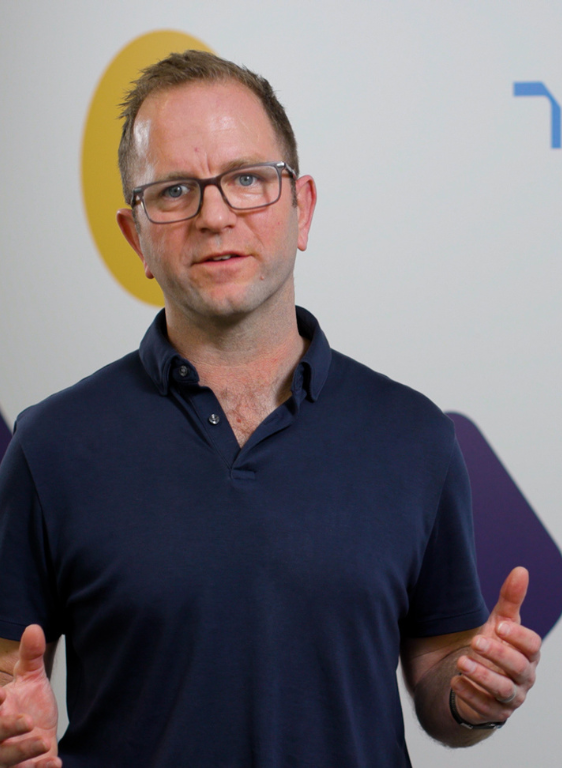
Five things to consider before becoming an IT contractor
IT contracting is a rewarding career. It’s flexible, well-remunerated and offers plenty of variety.
But it’s more complicated than you might think, writes Adrian Smith, a senior director of operations at Randstad Digital.
In this article, exclusively for Free-Work, I’ll share five crucial considerations that can help you make an informed decision as to whether you should get into freelance IT contracting.
1. Legal set-up
Contracting is when you're hired for a fixed amount of time (usually three months, but sometimes up to a year).
You therefore could be self-employed working for the client, or an employee of an umbrella company working for the client, or working for the client but employed by an agency. In some cases, you might even be added to the client-company's payroll.
Essentially though, as a truly freelance contractor or independent consultant, you operate as a business and this comes with responsibilities that full-time employees don’t have.
One option is to register as a sole trader — an individual running your own unincorporated business. The other (more popular) option is to work as a limited company — a separate legal entity that offers certain tax advantages.
It's important that you pick the contracting structure that aligns with your financial goals and capacity to tolerate risk. Speak to a knowledgeable recruiter about either route, or consult an accountant for specific advice and guidance on your legal set-up.
2. Demand
If you’re currently a permanent employee with primarily IT/technology skills, before diving into contracting, you ought to assess the demand for your specific skill-set in the temporary/contract market.
Tech is a dynamic sector and some skills are in higher demand on a contract basis than on a full-time basis and vice versa.
So research the current market, trends, emerging technologies, and the demand for your expertise within your preferred location and/or sector.
For example, while data jobs are pretty ‘hot’ in London at the moment, that won’t always be the case! As per my advice in the prior section, have a frank discussion with a good recruitment consultant about your best move, as to where you focus ought to be.
3. Insurance
As an IT contractor, you are responsible for your own insurance and liability coverage.
Professional indemnity insurance, public liability insurance, and employer's liability insurance are essential considerations to protect yourself and your contracting business.
Professional indemnity insurance, in particular, can provide coverage in case a client alleges that your work caused them financial loss. Mitigate risks by researching the specific insurance requirements for your field and ensuring you have adequate coverage.
4. Understand IR35
IR35 is the term given to the legislation governing the tax status of individuals who provide their services through a limited company (commonly known as a Personal Services Company or ‘PSC’).
IR35 is designed and enforced by HMRC to ensure an individual working through their own limited company is paying the appropriate taxes.
Using certain criteria informed by case law, the rule assesses whether a contractor is a genuine contractor or a ‘disguised employee’ — and the implications can significantly impact your tax bill.
In some cases, you may fall within IR35 i.e. you are caught by IR35, which will require you to pay taxes and National Insurance Contributions like a conventional employee.
5. Think carefully about each contract’s particulars, including work-life balance and pay
Contracting can offer a better work-life balance — because you tend to have more control over the hours you work.
Do you have other commitments and need to manage your schedule in your own way? The temporary working lifestyle can give you that flexibility.
But it's also important to actively manage your work-life balance. Contracting can also involve long hours and tight deadlines. You have to establish healthy boundaries if you are going to avoid burnout.
You’ll have to assess each contract, as you find them (a task in itself if you don’t use a recruiter), on their individual merits.
How much of the role is remote? How long does the project last? What are the potential travel requirements, and costs? Is there time to take a break before the contract’s commencement? By asking yourself these and more questions, you’ll effectively weigh-up each contract opportunity while making sure you get time off between contracts.
Use downtime, or time out of contract when you’re not working or cannot find work (‘on the bench’ as IT contractors refer to it as) to recharge, and pursue personal interests. But also, don’t forget to keep your tech skills up-to-date.
As part of assessing each contract, you should consider how much you want to earn (your ‘take-home pay’).
It's not unusual for a software developer to earn £500 a day. In comparison, the same full-time position can pay up to £80,000 a year. Both are well paid — don’t get me wrong. But permanent employees could take home after tax £4,517.97 a month with 20+ days holidays every year (and one paid sick leave).
By contrast, a contractor could earn £500 a day and then chooseto take seven weeks off — or two weeks off between contracts, 20+ days’ holiday, and one week off sick. Using an umbrella company, the contractor could be paid during that sick leave; using a PSC on an outside IR35 basis, the contractor could not.
Take-home pay (i.e. in your pocket after tax) for this PSC might be £5,766.35 a month. Although be aware -- there are accountancy fees to consider; maybe £1,200 a year, possibly pension contributions and other outlays, like insurance (above).
So while a temporary role can offer tax benefits and attractive day rates, in many ways, the extent of your earning potential as a limited company IT contractor is actually decided by your willingness to be active; get out there, and land contracts.




Comment
Log in or create your account to react to the article.